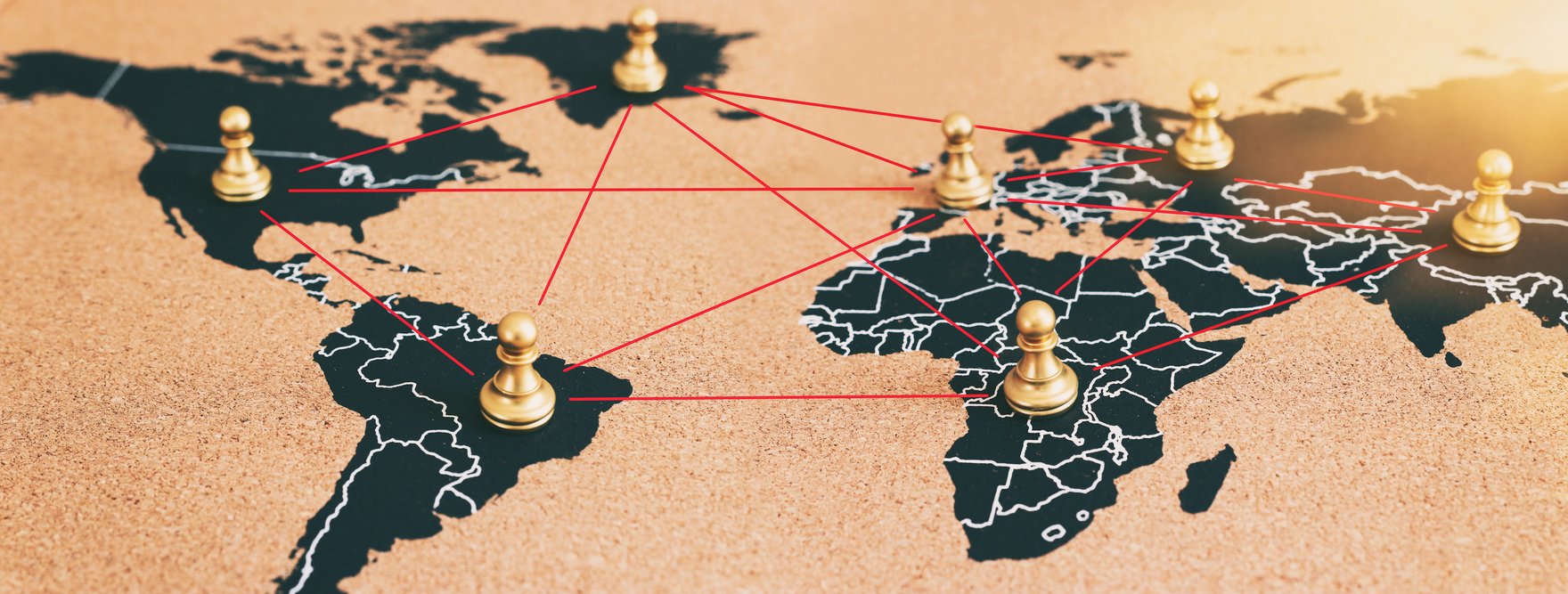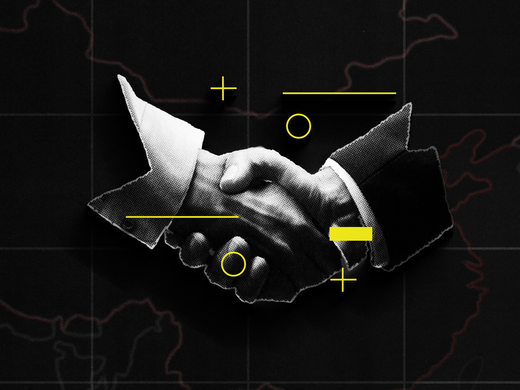We asked: “What were the greatest global successes of 2023 and where does opportunity lie in 2024?”
Dianna English, Director of Program Management
Looking back at 2023, we see human rights violations and abuses continue to ricochet on- and offline, as we saw in last June’s violent attack at the University of Waterloo.
Freedom House reported that global internet freedom declined for the thirteenth consecutive year. Digital tools, especially artificial intelligence, have amplified disinformation recently in Gaza and in at least 16 other countries between June 2022 and May 2023 — a stark dynamic as 2024 presents 40 national elections globally, representing 41 percent of the world’s population. In Canada, the proposed Online Harms Bill continues to languish.
And yet, the human rights community remains more resilient than it should have to be.
In January, Mykhailo Fedorov, then Ukrainian deputy prime minister and minister of digital transformation, was named “Digital Innovator of the Year,” recognizing his ministry’s Diia app, which helps citizens connect with their government to access basic public services during the war.
The human rights community remains more resilient than it should have to be.
In Sudan, “resistance committees” established during the 2019 pro-democracy movement leveraged their digital networks to provide critical aid as war broke out in April, even as they were marginalized from political decision making. This stood in stark contrast to the use of digital tools by the generals driving the conflict.
Local networks are endlessly creative, as outlined by the Association for Progressive Communications in “12 stories of people connecting themselves while defending the well-being of their communities.”
And, finally, on the seventy-fifth anniversary of the Universal Declaration of Human Rights in December, key stakeholders addressed “The Future of Human Rights and Digital Technologies,” including a “pledging tree” with concrete commitments to improve human rights for communities, for nations, for everyone.
Digital tools are some of the best ways in which advocates will continue to beg, borrow and steal their rights for want of responsible governance, but the alarm has rightly been sounded around their growing risks going into 2024.
Bob Fay, Managing Director of Digital Economy
There is no doubt that 2023 was both an exciting and tumultuous year in digital technologies.
Generative artificial intelligence caught the world by surprise, then by storm, and now this incredibly powerful, exciting technology is being used by millions of people in millions of different ways. Its use has forcefully revealed the lack of governance not only around this invention, but also around the development and uses of data-driven technologies more generally. Data governance needs to take centre stage to minimize “garbage in, hallucinations out.” But how to ensure coherent governance along the data value chain remains a big challenge.
Fortunately, there is recognition about the urgency of action, and a lot of the building blocks are under way. Legislation is on the table in some jurisdictions; standards development is advancing; new regulatory structures are being examined to account for the linkages among privacy, competition, intellectual property, online harms and so on; and how to value data as well as the appropriate data governance structures is up for discussion.
The next year will require greater emphasis on collaboration and on multi-stakeholder input to ensure that data governance reflects the values of all individuals and communities.
But there are gaps and uneven progress nationally and internationally in all these areas. International cooperation is fledgling and lacks structure, and there are tensions around types of governance models given differing priorities and values.
The next year will require greater emphasis on collaboration and on multi-stakeholder input to ensure that data governance reflects the values of all individuals and communities.
Paul Samson, President
In 2023, geopolitics reigned supreme. US-China relations were especially important, leading to much rhetoric, military posturing and trade skirmishes. Global cooperation reached a general low point and hampered agreement on key issues of common interest such as climate change, food security and international trade, and there has been no impetus for rapidly resolving the wars in Ukraine or the Middle East. What’s more, regional crises and conflicts, of which there are many, are more intractable in the absence of any obviously aligned interests among the superpowers.
Multilateralism will struggle to find much traction during 2024 in the absence of a crisis where superpowers share common interests.
Yet the world is not bipolar. India emerged as a potentially significant player on the global stage by very ably hosting the 2023 G20 Summit. It emerged as a champion on many key issues for developing countries, but the depth and credibility of India’s international agenda remain to be proven.
In 2024, there will be a high number of planned events — in addition to the unpredictable — that could alter the status quo. Key elections will be held in Taiwan, Russia and Mexico. The US presidential election will have critical global implications regardless of who wins. There will also be two AI Safety Summits, the UN Summit of the Future and the first meeting of the expanded BRICS. Italy will host the G7 and Brazil the G20.
The dust has not yet settled on the new multipolar order. Multilateralism will struggle to find much traction during 2024 in the absence of a crisis where superpowers share common interests.
Aaron Shull, Managing Director and General Counsel
By almost any measure, 2023 was a tough year for Canadian foreign and security policy.
Released in late 2022, Canada’s Indo-Pacific Strategy was an important refresh set to provide almost $2.3 billion over five years to support reinvigorated regional engagement. But as we moved through 2023, we saw an example of how “plans rarely survive first contact with reality.”
The Indo-Pacific Strategy — rightly — positioned India as a “critical partner” in Canada’s pursuit of its objectives. This was premised on growing economic ties, expanded market access and academic exchanges. Owing to India’s strategic importance in the region, and its double honour as the most populous country on Earth and its biggest democracy, the strategy boldly states that “Canada will seek new opportunities to partner and engage in dialogue in areas of common interest and values, including security, and the promotion of democracy, pluralism and human rights.”
In September, Prime Minister Justin Trudeau alleged that India’s government was involved in the killing of Hardeep Singh Nijjar, a Canadian citizen, setting off a series of events including the cancellation of a trade mission, the suspension of trade talks, the expulsion of diplomats (and the revocation of diplomatic immunity), and the suspension of visa processing.
2023 also saw the creation of a National Security Council, chaired by the prime minister, which now serves as the government’s principal forum “for strategic decision making.”
On the brighter side, 2023 also saw the creation of a National Security Council, chaired by the prime minister, which now serves as the government’s principal forum “for strategic decision making.” This is a welcome addition that is credited to CIGI through its national security research and policy recommendations.
Whatever may come in 2024, two things will be true: India will still be a critical player in the region and the National Security Council will be busy.



